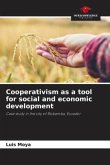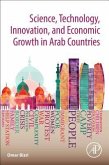The economic decision-making process is becoming increasingly complex, demanding more agility, as the evolution of information systems and technology mark the process, allowing greater mobility of factors where the exclusive knowledge of the company's own market and sources of supply are no longer sufficient reasons for achieving business success. For this reason, studying the general outline of the policies implemented in these countries is very useful for countries such as Mexico. This paper describes in a synthetic way the main elements to be considered in an industrial policy, in order to disseminate and convince society and the political class of the benefits of such a policy to achieve development. The above situation is the result of an increasingly international competition with companies from countries with diverse economic characteristics and differentiated competitive strategies where, in spite of neoliberal theories, the State has become an important economic agent because its economic and political decisions alter the business environment.
Bitte wählen Sie Ihr Anliegen aus.
Rechnungen
Retourenschein anfordern
Bestellstatus
Storno








